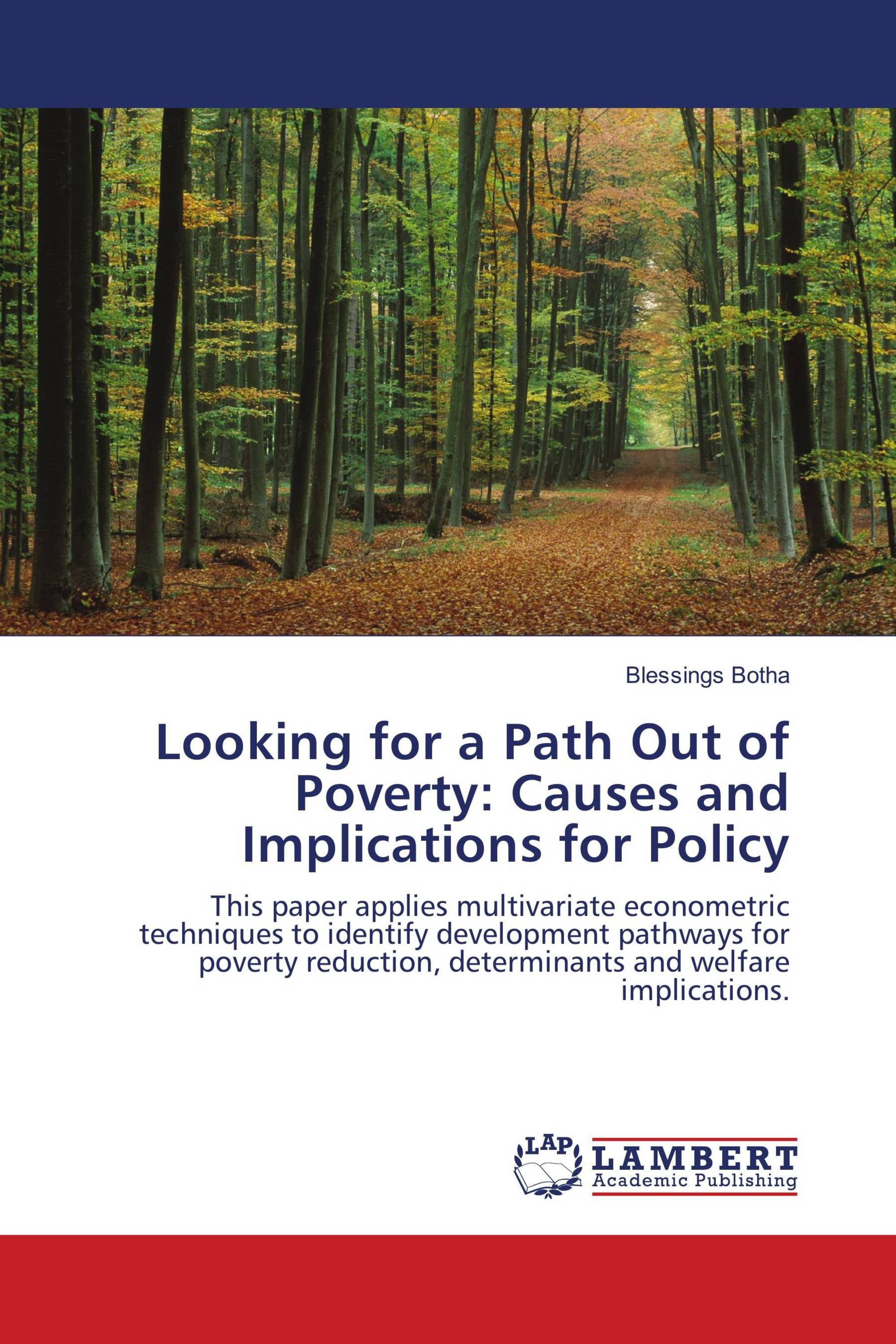Looking for a Path Out of Poverty: Causes and Implications for Policy
This paper applies multivariate econometric techniques to identify development pathways for poverty reduction, determinants and welfare implications.
€ 49,00
This paper applies multivariate and econometric techniques on cross-sectional data for Malawi to identify development pathways for poverty reduction, investigates their determinants and welfare implications. The study identifies three pathways:- non-farm/non-food, forestry/livestock and tobacco pathways. Non-farm/non-food pathway is associated with lower landholdings and close proximity to output markets. This pathway increases income inequality but no effect on household welfare. Forestry/livestock pathway is associated with the poor and older households in remote areas with limited market access. Although this pathway reduces the overall welfare, it reduces income inequality among households. Tobacco pathway is associated with male-headed, richer households with credit access, in highly populated areas closer to forests. This pathway increases both welfare and income inequality among households. From the policy perspective, these results proposes forestry/livestock pathway as a pro-poor, rural development strategy. This calls for the promotion of integrated forestry/livestock systems and market development for forestry and livestock products.
Book Details: |
|
|
ISBN-13: |
978-3-8383-0178-5 |
|
ISBN-10: |
3838301781 |
|
EAN: |
9783838301785 |
|
Book language: |
English |
|
By (author) : |
Blessings Botha |
|
Number of pages: |
92 |
|
Published on: |
2009-05-27 |
|
Category: |
Agriculture, horticulture, forestry, fishery, nutrition |
